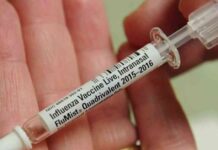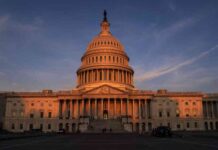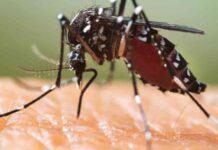Navigating Controversy: Impact of Retracted Trans Youth Paper on Research Landscape
Last year, a Springer Nature journal published a study surveying 1,700 parents of adolescents and young adults with gender dysphoria. Just a few months later, the study was retracted because there had been no formal process for those parents to consent to the study.
But the story didn’t end there. Ongoing fallout from the paper and its retraction has opened up an internal rift among academic editors and journal staff that led to one editor’s resignation, as first reported by Retraction Watch.
The controversy, outside experts say, is a microcosm of an important shift in how academic circles think about research on trans people and other marginalized communities. Advocacy from members of those communities, including Black and Indigenous scientists as well as disabled scientists, aims to ensure that the subjects of research play a central role in shaping it.
“The entire point of any research related to transgender and gender diverse people should be to improve the health of that population,” said Alex Keuroghlian, the director of the National LGBTQIA+ Health Education Center. “Any research about a community should be led by that community, or at least robustly include community voice.”
The Ripple Effect of Retraction
The retracted article, “Rapid Onset Gender Dysphoria: Parent Reports on 1655 Possible Cases,” was published in March 2023 in the Springer Nature journal Archives of Sexual Behavior. Rapid onset gender dysphoria is a much-criticized theory that, as the paper explains, suggests social contagion leads adolescents to “falsely believe that they are transgender, and that they must undergo social and medical gender transition to resolve their issues.”
Rapid onset gender dysphoria is not an accepted medical diagnosis, and experts dispute the hypothesis, pointing to surveys of transgender and gender diverse people that show they have often understood themselves as transgender for years before they began telling other people.
The study surveyed parents of trans youth who found and contacted the website ParentsofROGDKids.com, which the study’s authors note is a self-selecting group of parents “unlikely to be supportive about their children’s transgender status.” According to the parents, their children’s mental health deteriorated after transitioning. The backlash to the study was swift, with researchers arguing that the study did not obtain proper consent before or after data were collected. For those reasons, it was ultimately retracted a few months later, in June 2023.
“Yeah, there are certain things that could have been done better,” Michael Bailey, a psychologist at Northwestern University who co-authored the retracted study, told STAT. “[But], all research is imperfect.”
In the months after the retraction, Chris Ferguson, a psychologist at Stetson University and an editor at a different Springer Nature journal, Current Psychology, accepted a manuscript by Bailey that argued retractions are “increasingly a vehicle for scientific censorship,” as reported by RetractionWatch.
A Changing Climate for Trans Research
In this highly politicized environment, journals are grappling with their responsibilities toward how marginalized groups are represented.
“The scientific publishing industry cannot prevent a sociopolitical group from misusing science and misrepresenting science,” said Isabel Goldman, a former editor at Cell and DEI lead at Cell Press, who helped develop guidelines for reporting sex- and gender-based analyses at Elsevier. “But what I think we can do, and what I feel we actually have an ethical responsibility to do as stewards of the scientific literature, is when we see the science being misused is to say something.”
The trans rights movement has prompted a number of changes at journals and other scientific institutions. Goldman edited a special issue of Cell on sex and gender, and the new guidelines on reporting on sex- and gender-based analyses were implemented at more than 2,000 Elsevier journals. The guidelines call for collecting data on both gender identity and “sex assigned at birth.” The National Institutes of Health has also changed the language it uses to describe sex and gender. Since the agency’s guidelines on sex as a biological variable were introduced, its language has become more complex. Keuroghlian recently published the first editorial on transgender health research in the prestigious journal, Science, in its 150-year history.
“The good news is that the generation of researchers and scholars coming up really understands and prioritizes community engaged research and scholarship,” Keuroghlian said. “So we’re seeing that this will be less and less of a problem in the years ahead, as the culture within academia shifts towards respect for community voices.”
While research on trans communities is changing, Gill-Peterson also raises a more fundamental question about the purpose of research. “Why do we think people’s decision-making and power, their right to control their own body, depends on peer-reviewed scholarship?” she asks. “I doubt most people think that their sense of the right to their own body flowed originally from a peer-reviewed scientific journal. I think most people would say that that’s something that belongs to them inexorably.”

















